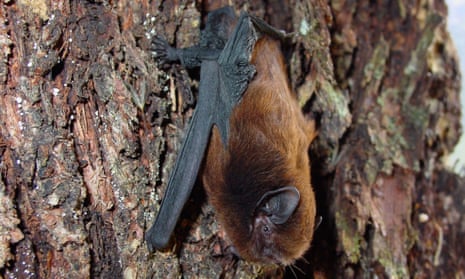New Zealand’s bird of the year competition has been hit with a flurry of controversy, after a species of native bat was granted entry into the polls.
Candidates for the beloved annual election released today included shock newcomer the long-tailed bat, or pekapeka-tou-roa. It is the first time a New Zealand native land mammal has been included in the competition, which has been running for 16 years.
A spokesperson from conservation organisation Forest & Bird, Laura Keown, said allowing bats to enter was not a public-relations rehabilitation job after the winged mammals were implicated in creating a global pandemic.
“No, not really,” Keown said. “It wasn’t part of the calculation.”
“Our native bats are completely innocent in that regard. … They’re adorable and special and not responsible for diseases.”
Keown said allowing bats entry was an attempt to raise their profile as a critically endangered species.
“The idea has been rattling around for a while but perhaps our only native land mammals could be included in the competition because they are also in serious trouble,” she said.
The announcement caused some consternation among New Zealanders online. “A mammal is hi-jacking the BIRD of the year competition. We want to be inclusive, but …,” commented the NZ Science Learning Hub.
“I love bats, but bats are not birds,” one Twitter user. “It’s adorable. But not a bird,” another said.
Others supported the candidacy. “Who can be mad at a bat running for NZ bird of the year when it acts more like a bird than most of our actual birds? Our only mammals think they are birds. Our birds think they are burrowing mammals,” said one person on Twitter.
New Zealand’s bird of the year, an online election that garners tens of thousands of votes each year, is no stranger to controversy.
In 2019, the arrival of hundreds of votes from Russia sparked claims of election meddling. The votes were ultimately judged legitimate, and a Forest & Bird spokesperson said at the time that interest from Russian ornithologists may be responsible.
“New Zealand actually shares birds with Russia,” they said. “We have the bar-tailed godwit that makes an annual round trip.”
In 2018, Forest & Bird said 300 fraudulent votes were cast in the online ballot by Australians attempting to rig the contest in favour of the amusingly named shag.
Bats are New Zealand’s only land-based mammals. The long-tailed bats are about as small as a thumb, the wingspan of a hand, and weigh the same as New Zealand’s $2 coin.
Forest & Bird rejected the idea that allowing mammals to enter bird of the year could prove a slippery slope, enabling cascading eligibility claims from reptiles or insects.
“I would say that anything can happen in bird of the year. However, I don’t think it will get too out of hand,’’ Keown said.
